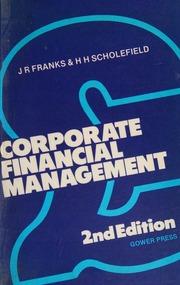Question
Answer the following questions: (Do not attempt if you cannot answer all) 1) Which of the following is true? Select one: A. Financial intermediaries transform
Answer the following questions: (Do not attempt if you cannot answer all)
1) Which of the following is true?
Select one:
A. Financial intermediaries transform claims in the process of channeling funds.
B. Securities firms transfer, but do not transform, claims in the process of channeling funds.
C. Both of the above.
D. None of the above.
2) A large domestic bank with headquarters in New York City that provides international lending and payment services to large, multinational business firms is most likely to be a:
Select one:
A. Money Center Bank
B. Regional Bank
C. Mid-Market Bank
D. Community Bank
3) Which of the following is true regarding bank charters?
Select one:
A. All U.S. commercial banks must be chartered in order to operate.
B. All U.S. banks must be federally chartered.
C. National banks are chartered by the Federal Reserve.
D. All of the above.
4) Which of the following is characteristic of fractional reserve banking?
Select one:
A. Restricting the access of depositors to money in their passbook savings accounts.
B. Maintaining sufficient bank reserves to cover all outstanding loans.
C. Making only long-term loans to both consumers and businesses.
D. None of the above.
5) When an investment bank underwrites a new security offering it
Select one:
A. makes a loan to the issuing firm.
B. sells securities to a company in need of capital.
C. transforms the claims of the issuing firm.
D. purchases the new securities and resells them to investors.
6) Which of the following is true of securities dealers?
Select one:
a. They are active in the secondary market, buying and selling previously issued securities.
b. They may own securities, which they inventory prior to selling to investors.
c. They may be involved in the distribution process for a new securities issue.
d. All of the above.
7) Which of the following statements is true regarding credit unions?
I. Credit unions specialize in making home mortgage and auto loans II. Credit unions are tax-exempt institutions III. Credit unions do not offer any insurance protection against the loss of member deposits
Select one:
a. I only
b. I and II only
c. I and III only
d. II and III only
8) The two broadest groups of financial institutions in the U.S. can be classified as
Select one:
a. financial intermediaries and securities firms.
b. depository and non-depository intermediaries.
c. commercial banks and thrift institutions.
d. money market firms and capital market firms.
Step by Step Solution
There are 3 Steps involved in it
Step: 1

Get Instant Access to Expert-Tailored Solutions
See step-by-step solutions with expert insights and AI powered tools for academic success
Step: 2

Step: 3

Ace Your Homework with AI
Get the answers you need in no time with our AI-driven, step-by-step assistance
Get Started


